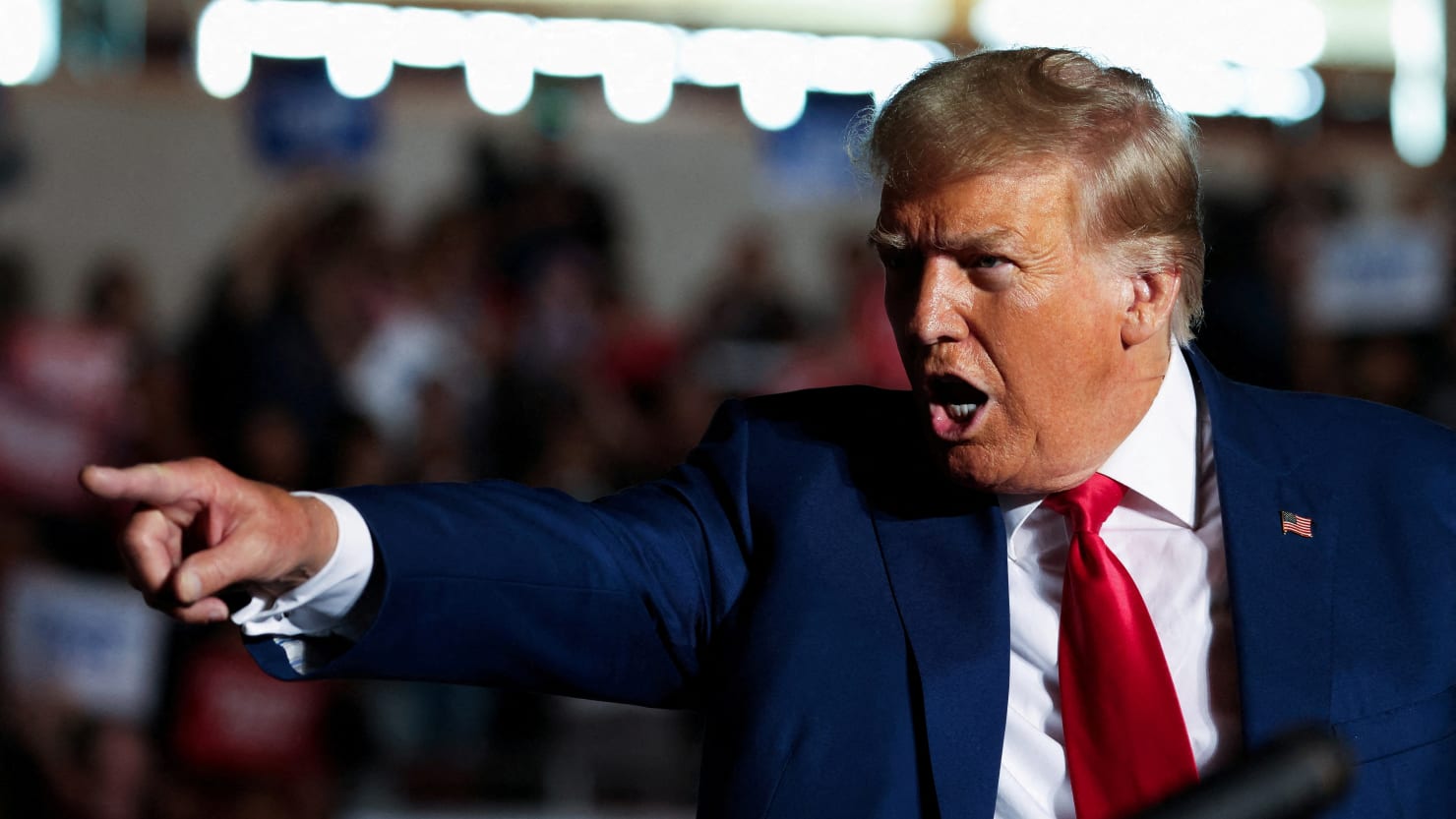The 14th Amendment to the Constitution bans anyone who “engaged in insurrection or rebellion against” the U.S. from holding office.
A Florida lawyer is suing Donald Trump in an attempt to disqualify his current run for president. Lawrence A. Caplan’s Thursday lawsuit claims that the ex-president’s involvement in the Jan. 6 Capitol riot would make him ineligible to run again, thanks to the Constitution’s 14th Amendment—a Civil War-era addition aimed at preventing those who “engaged in insurrection or rebellion against” the U.S. from holding office. “Now given that the facts seem to be crystal clear that Trump was involved to some extent in the insurrection that took place on January 6th, the sole remaining question is whether American jurists who swear an oath to uphold the U.S. Constitution upon their entry to the bench, will choose to follow the letter of the Constitution in this case,” the lawsuit says, also citing Trump’s alleged efforts to overturn the 2020 election results in Georgia. Legal experts say it’s an uphill battle to argue in court, since the amendment has hardly been exercised in modern history. “Realistically, it’s not a Hail Mary, but it’s just tossing the ball up and hoping it lands in the right place,” Charles Zelden, a professor of history and legal studies at Nova Southeastern University, told the South Florida Sun Sentinel.
archive link to South Florida Sun Sentinel article: https://archive.ph/1BntD


It’s not the simple. Maybe a lawyer can stop by and explain it.
The recent cases about student loans is a perfect example. Many were overturned over standing.
I get the basics of standing but the way the courts use it often leaves me confused since they take a very narrow stance.
I’m not a lawyer (yet) as I haven’t taken the bar exam, but I remember learning this in law school.
I can’t find the original court filing that all these news articles are reporting, but presumably, this is a special kind of suit seeking a “declaratory judgment” - a suit asking the court to prevent a harm before it happens.
Cornell Law School discusses it in a somewhat lengthy read but put “simply”, for standing in this kind of case, the court would want to see:
a concrete controversy (as opposed to a hypothetical one, e.g. you can’t seek a declaratory judgment “in case my neighbor decides to hit me”),
between adverse parties (some random citizen can’t sue you for breaking a promise you made to your grandma),
that is ripe (where enough has already happened that a decision right now wouldn’t require much speculation),
not moot (has to be able to affect the current case, for example, declaratory judgment isn’t appropriate to determine “should he have done that?”), and
the court’s decision is needed to prevent imminent harm (has to be relatively certain that a party would be adversely affected if the court doesn’t prevent it from happening).
Here there could be issues of ripeness: the court might not want to act on the mere possibility that Trump will be found guilty of insurrection etc. Courts don’t like to tell people what they can and can’t do unless a real situation makes it necessary, otherwise the court would risk encroaching on powers that belong to the other branches of government.
Good break down and thank you. This is the interaction I like.
Thank you for bringing rigour and structure to the discussion as opposed to sheer speculation. Take my upvote pretty please.
That case is also an example of this working. The case in front of the Supreme Court had no standing since is was fake plaintiffs.
That was a different case. That was about a web developer not wanting to do gay marriage websites or some crap. The plaintiff was fake but the courts still ruled on it which I found confusing.
The Supreme Court doesn’t think separation of church and state is worth preserving and will do every it can to dismantle it. That is why we are getting state funded religious schools and prayer is creeping back in.
I am an atheist and I don’t mind state funding private schools through vouchers. I can’t speak for all religious schools but when I was growing up, those were the most highly rated schools. We need to fix our schools and competition is a good thing. The other option is we ban all private schools. I can’t remember which country did that and they had good results but they do find religious schools the same.
You do understand the voucher thing is an attempt to remove funding from public education right ?
And?
If public schools are not meeting the needs then people need alternatives. Money isn’t always the solution to solving problems. Competition in the market place is a good thing.
https://alec.org/article/increasing-education-spending-equal-higher-test-scores/
deleted by creator